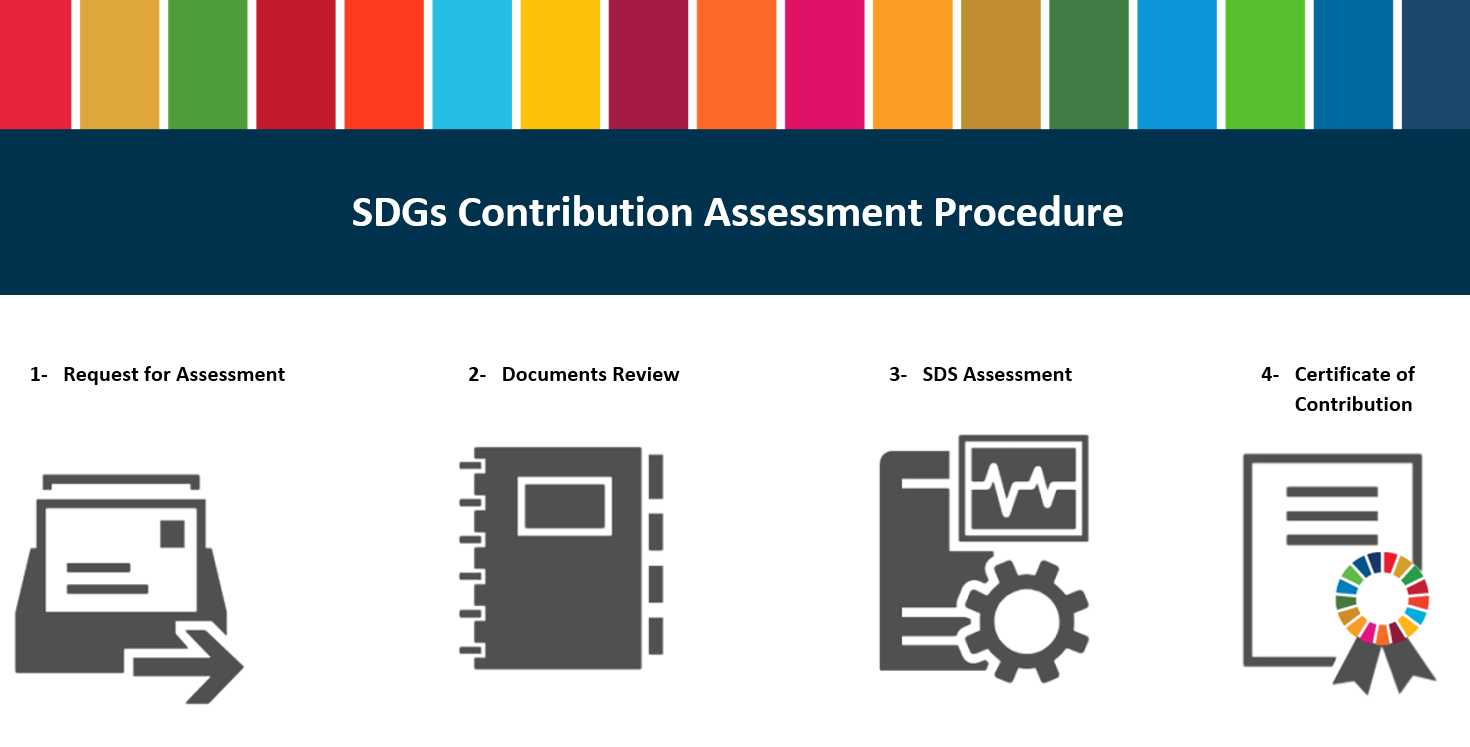SDS GROUP NEW YORK, LLC.
- info@sdsgroup.global
Project-Level SDGs Measurement
In Project-Level SDG Measurement, we will help you for changing your project landscape in advancing the sustainable development goals and demonstrate leadership in the adoption and implementation of sustainable principles for projects.
1- Send us your request letter and attach information about your project
2- We will review your information and ask project managers or company representatives to declare specific activities or projects which you have done related to UNGC, SDGs, CSR and ESG.
3-We will assess your project based on our principles as follows.
4- If you pass the SDS assessment successfully you will be certified for UNSDGs project-level contribution (Related SDGs)
For the first time, The SDG Project Assessment is developed by UN-Habitat as a guide for city authorities and delivery partners in the development of more inclusive, sustainable and effective urban projects.
The general framework of the SDG project assessment comprises the complete list of sustainability Principles, aligned to the Sustainable Development Goals (SDGs), and the related performance in the three thematic pillars of the Global Future Cities Programme: Urban Planning, Transport and Resilience.
But today, many businesses in different areas spend time mapping and selecting "their" goals in Agenda 2030, there are a lot of tools that offer a structured way to describe a project’s or organization’s impact on the Global Goals, based on the users’ knowledge so depending on how the user defines the purpose of the assessment, the tool can fulfil different objectives.
We try to reverse this perspective and back to the traditional way of Audit and measurement by experts.
In order to be sustainable programs and projects should adhere to the following six principles which are
derived from:
· UN Global Compact's Ten Principles
· UNSDGs
· NSDS
· UNPRI (ESG Principles)
· ISO:26000 Guidance on Corporate Social Responsibility
1. Commitment & Accountability
Recognize the essential rights of all to healthy, clean and safe environments, equal opportunity, fair remuneration, ethical procurement, and adherence to the rule of law
2. Ethics & Decision Making
Support organizational ethics, and decision-making with respect for universal principles through identification, mitigation, and the prevention of adverse short and long-term impacts on society and the environment
3. Integrated & Transparent
Foster the interdependence of economic development, social integrity, and environmental protection in all aspects of governance, practice and reporting
4. Principles & Values-Based
Conserve and enhance our natural resource base by improving how we develop and use technologies and resources
5. Social & Ecological Equity
Assess human vulnerability in ecologically sensitive areas and centers of the population through demographic dynamics
6. Economic Prosperity
Adhere to fiscal strategies, objectives, and targets that balance the needs of stakeholders, including immediate needs and those of future generations

